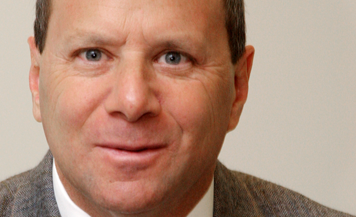Surprising Rate of Recurring Heart Attacks, Strokes Globally: U.S. Doesn’t Fare as Well as Japan and Australia
|
|
|
| Mark Alberts, M.D., professor of neurology at the Feinberg School of Medicine and director of the stroke program at Northwestern Memorial Hospital |
August 31, 2009 â Despite many medicines and other treatments for patients with vascular disease, a large international study shows that these patients have a surprisingly high rate of recurring events such as strokes, heart attacks and hospitalizations as well as mortality.
Also unexpected: patients in North America (including the United States) experienced an above-average rate of these events. Patients in Eastern Europe had the highest rate, and those in Australia and Japan had the lowest.
The results from the international REACH (Reduction of Atherothrombosis for Continued Health) Registry, presented by a researcher from Northwestern University Feinberg School of Medicine, examined data for 32,247 patients one and three years after they enrolled in the registry. Patients who had symptomatic vascular disease had a 14.4 percent rate at one year and 28.4 percent rate at three years of having a heart attack, stroke, rehospitalization for another type of vascular event or vascular death. Patients with vascular disease in more than one location of the body had the highest event rate at 40.5 percent at three years.
When projected over the global population who would mirror the patients in REACH, this represents millions of serious vascular events occurring every few years, many of which could be prevented.
“We were surprised by the high rate of these recurring vascular events,” said lead author Dr. Mark J. Alberts, professor of neurology at Feinberg and director of the stroke program at Northwestern Memorial Hospital. “We know how to prevent vascular disease and the events that it produces. This points to the need for better prevention, better use of medications and a need to develop more potent medications. These are the number one and two causes of death throughout the world.”
Vascular disease affects tens of millions of people in the United States and hundreds of millions globally, Alberts noted.
Alberts presented the results of the study at the European Society of Cardiology Congress 2009 in Barcelona on Aug. 31. A paper will be published simultaneously in the European Heart Journal.
Many of the patients in the REACH study were taking the appropriate medications for their vascular disease. “But that doesn’t mean the medications worked or were being adhered to properly,” Alberts said. “Perhaps they need more or different medications.”
He said this study shows the need for more patients to adopt healthier lifestyles with increased exercise, a healthy diet and smoking cessation. These are inexpensive approaches to reducing and preventing the occurrence of vascular events.
Recurring vascular events cost billions of dollars annually in the United States. The cost of heart attacks, angina or related conditions in the United States is $150 billion, of which 60 percent is related to hospitalization. The annual cost of these conditions in Germany is â¬3.3 billion and in Italy, â¬3.1 billion.
Between 19 percent and 33 percent of patients were rehospitalized for a vascular event other than a recurrent stroke, heart attack or vascular death. Since hospitalization is a major driving factor in health care costs, any steps to reduce the rate of hospitalization would have a positive impact on reducing health care expenses.
The REACH Registry is funded by Bristol-Myers Squibb, sanofi-aventis and the Waksman Foundation in Japan. The REACH registry is endorsed by the World Heart Federation. Alberts has received research grants, honoraria and consulting fees from sanofi-aventis and Bristol-Myers Squibb.
For further information on the REACH Registry, visit www.reachregistry.org.







